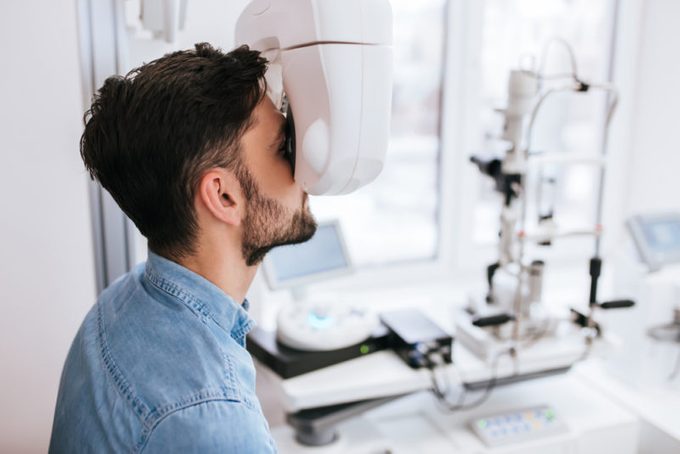How Many Times a Year Should You Really See the Doctor for Checkups?
Updated: Apr. 23, 2020
Medical experts, from OB/GYNs to dermatologists, reveal how often you need to visit your doctor to stay on top of your health.

Certain groups, like children and the elderly, need checkups with their healthcare providers every year, but what about healthy younger or middle-aged adults? Is the annual checkup really necessary? Well, it depends. While it’s always important to make a plan with your own medical provider, we asked the experts about the best checkup schedules, and how often you should visit these doctors. (Check out the 10 things to not to do before a doctor’s appointment.)
Primary care provider
Most healthy adults do not need to see their primary care providers every year. “The frequency of visits depends on someone’s age and underlying health status,” says Lisa Doggett, MD, affiliate faculty, department of population health, Dell Medical School in Austin. “For a healthy young adult with no medical problems, usually a check-in visit every two—or even three—years is reasonable,” says Dr. Doggett, a family physician. A visit with your primary care provider is important to check your blood pressure, weight, and early warning signs of chronic diseases. She recommends that middle-aged and older adults see their primary care doctors every year to detect and manage chronic diseases like type 2 diabetes or heart disease.
Routine screening tests with your primary doctor can include blood work, mammograms, colonoscopies, bone density, skin checks, family history screenings, as well as making sure you are up to date on vaccines. Once you turn age 45 to 50, your doctor will recommend colonoscopies every ten years. (Although some people need to start colorectal cancer screening even earlier.) “In the United States, the incidence of colon cancer is on the decline by about 2 to 3 percent due to better awareness in screening and better lifestyle choices over the past 15 years,” says Sherry Ross, MD, OB/GYN, a women’s health expert at Providence Saint John’s Health Center in Santa Monica. “Early detection saves lives.” (Make sure you know the right questions to ask your doctor.)
Gynecologist
Most healthy women should still plan to see their OB/GYN every year. “Plan annual well-woman visits with your ob-gyn or health care provider for general physical and mental wellness,” says Dr. Ross. “Women who are sexually active should be screened yearly for sexually transmitted infections including chlamydia and gonorrhea.” Dr. Ross recommends receiving a pap smear and HPV test every three years as long as the results are normal. (Although recommendations can vary with personal risk factors and age.) These tests screen for cervical cancer, so following your doctor’s recommended schedule will ensure that you can address any abnormal results or precancerous cells early. To screen for breast cancer, begin mammograms every one to two years beginning at age 40, unless you have other risk factors and need to start earlier.
Eye doctor

Ask your primary doctor if a visit to the eye doctor is necessary for you. “I usually recommend that patients see an eye doctor regularly if they have an underlying condition, like diabetes, that increases their risk of problems,” says Dr. Doggett. “If they are having visual changes, usually the primary care doctor can do some initial testing and refer as appropriate.” If you already use glasses or contacts, plan to see your optometrist every one to two years. This will help keep your prescription current. (Here are the 12 signs you need to visit your eye doctor.)
Dentist
Adults should visit their dentist every six months for cleanings and checkups. “This is due to the speed at which dental problems tend to present and how quickly hardened plaque—called calculus or tartar—can begin to cause gum issues,” says Greg Grobmyer, DDS, in Chattanooga, Tennessee. At your visit, expect to receive x-rays once per year to screen for bone loss and early cavities. Your dentist will also provide a yearly oral cancer exam by checking your mouth, throat, and under your tongue. Grobmyer explains the twice-yearly schedule is appropriate for most adults. But, with people who have periodontal problems or compromised immune systems, they should be seen more frequently. (Here are things you should never lie to your doctor about.)
Dermatologist
Regular visits to the dermatologist are not just for acne-prone teens. “Melanoma and other skin cancers can be detected by seeing a dermatologist for a mole check yearly,” says Dr. Ross. “It can be challenging to know the difference between a ‘beauty mark’ and an abnormal skin change.” Next, don’t miss the 10 secrets to finding a doctor you can trust.
